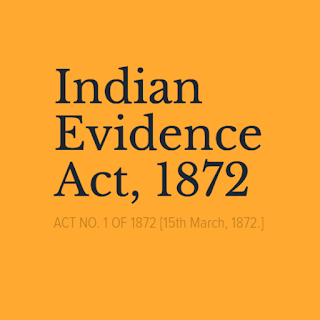Discuss the procedure of proving of Document that is required to be Law as contemplated under Section-68 of the Indian Evidence Act, 1872
Discuss the procedure of proving of Document that
is required to be Law as contemplated under Section-68 of the Indian Evidence
Act, 1872
Answer:-Section-68 of the Indian Evidence Act,
1872 said that, a document required by law to be attested shall not be used in
evidence until one attesting witness has been called for the purpose of proving
execution, if there be attesting witness alive and subject to process of Court and
capable of giving evidence.
1. When
until one attesting witness is called :- Section 68 of the
Indian Evidence Act, 1872 lays down that when a document required by law to be
attested, is produced in any judicial proceeding, it shall not be used in
evidence, i.e. it shall not be proved and made part of the record unless one of
the attesting witness at least is called for the purpose of proving its
execution.
For example- In a will production of at
least one attesting witness is essential for the purpose of verified that the
deed was signed by voluntarily by the testator. Although the will is registered.
2. When
witness may not be called:-Section-68 of the Indian
Evidence Act,1872 provides a special rule relating to the proof of the document
required by law to be attested. This proviso the necessity of calling an
attesting witness is done away with in the case of a registered document (Other
than a Will) unless its executed is specifically denied.
For example-A fill a suit for possession of
a property against B. A claim that B exected a mortgage deed in his favour.
During trial A produce Mortgage deed and B does not deny the deed then calling
of attesting witness is not required, if B deny the deed then the calling of
attesting witness is required.

If your FIR is not being registered or your complaint is ignored, consulting an experienced advocate can ensure your legal rights are protected and the proper legal process is followed.
ReplyDeleteGood Information! I appreciated your post about the book court notices.
ReplyDeletethangs
makerworld
roton
anonup
zumvu
forum.issabel
etherscan